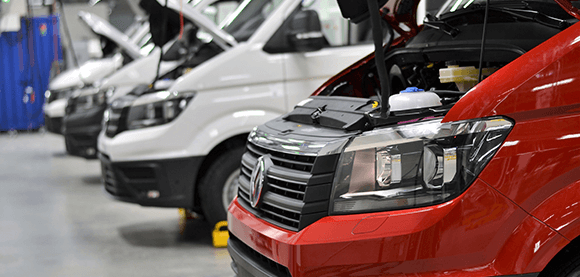How to approach fleet management after lockdown
20/07/2020 00:00:00by Mark McKenna20/07/2020 00:00:00How to approach fleet management after lockdownBluedrop Services


The current pandemic has seen the UK in lockdown since the end of March. Fleet managers had to adapt to a new way of working quickly to continue the running of their fleet. This meant fleet management had to be done from home while ensuring a good communication plan was in place to help operate the fleet during these times.
Now that the lockdown is gradually easing and most people are returning to their offices, you need to prepare for what the future of fleet management looks like and the things that need to take priority as lockdown eases.What has changed during lockdown for Fleet Managers?
The most notable change would be that fleet managers turned to working from home and had to manage their fleets without having the team close by. You may have different experiences depending on the type of fleet you manage, and how your business had to react.
For example, some fleet drivers may not be using their cars as regularly as those who operate in deliveries. However, those in transportation (such as taxi’s and coaches), perk drivers, and company vehicles used for transportation to clients and other offices may have seen a decline in vehicle usage.
You should expect there to be some short-term and long-term changes to fleet management, especially as your workforce returns to a new normal.
Here are some short-term solutions you need to consider as your fleet return to normalAs your workforce starts to return to work, there are more immediate things to consider when managing your fleet.
General maintenance checks
How is the chance for you to start clearing the backlog of vehicle repairs and maintenance checks. You may notice garages are busier than usual as people start to use their vehicles more often, they too will be scheduling in services and repairs.
As social distance restrictions are in place, this may make it harder for the garage to complete the work in a short time frame like they perhaps could have done before. Be mindful of the delays and plan ahead to keep on top of your own fleet maintenance checks.Drivers training
As lockdown was announced, many fleet managers and training providers delayed or cancelled scheduled driver training sessions. It is still important to keep your driver’s training up to scratch even throughout these difficult times.
Keeping driver training up to date is vital for the safety of your fleet and for also keeping costs down, as it prevents bad driving habits and reduces the risk of accidents. Now that many workers are operating again, it is important to reschedule any training that drivers are due.MOT checks
Fortunately, as the lockdown was announced, the government also extended any MOT’s that expire between the 30th March to 31st July by 6 months, giving businesses and car owners that couldn’t schedule MOT’s during the lockdown time to book one in.
However, if you can stay on top of this and keep MOT’s up to date, this will save any hassle of stress in the future and keep your fleet management under control and on time, whilst maintaining the safety of your vehicles.Dealing with any reports or requests
Over the past few months, your drivers may have been involved in minor accidents or have submitted reports that need dealing with, some third parties may be experience higher calls or, due to social distancing restrictions, have fewer people available to deal with your query.
It’s important to keep on top of any claims and not allow them to fall into the abyss.Long-term changes as your fleet return to work
With a decline in vehicle usage, it raises the question on whether your current fleet is working for you or whether you need to consider changing the types of vehicles you need in the future.
Over time, depending on the type of fleet you manage, you may notice the need and use for vehicles changes. Video calls have been a big hit over the past few months and this trend may continue, meaning less commuting to different offices for meetings.
To futureproof your fleet management, you may need to consider what type of vehicle is needed and who in your company actually benefits from them. As fleet vehicle numbers decrease or increase it is also important to keep on top of your fleet insurance policy by updating your broker with vehicle and driver details.
It may be time to consider switching to electric vehicles as drivers travel far and less often after the lockdown. Once you understand the needs of your fleet in the future and the financial challenges, your fleet may look differently.
To conclude, keeping on top of any delayed maintenance or training should take priority, but it is also worth considering what the future of your fleet looks like and what is needed to ensure your fleet is working effectively and efficiently.Return to blog menuWant to find out more about Bluedrop's Motor Fleet Insurance?
Call our friendly team now for the right insurance cover - at the best price
+441489780491
Calls recorded for training and quality.



 Privacy and Cookie Policy
Privacy and Cookie Policy